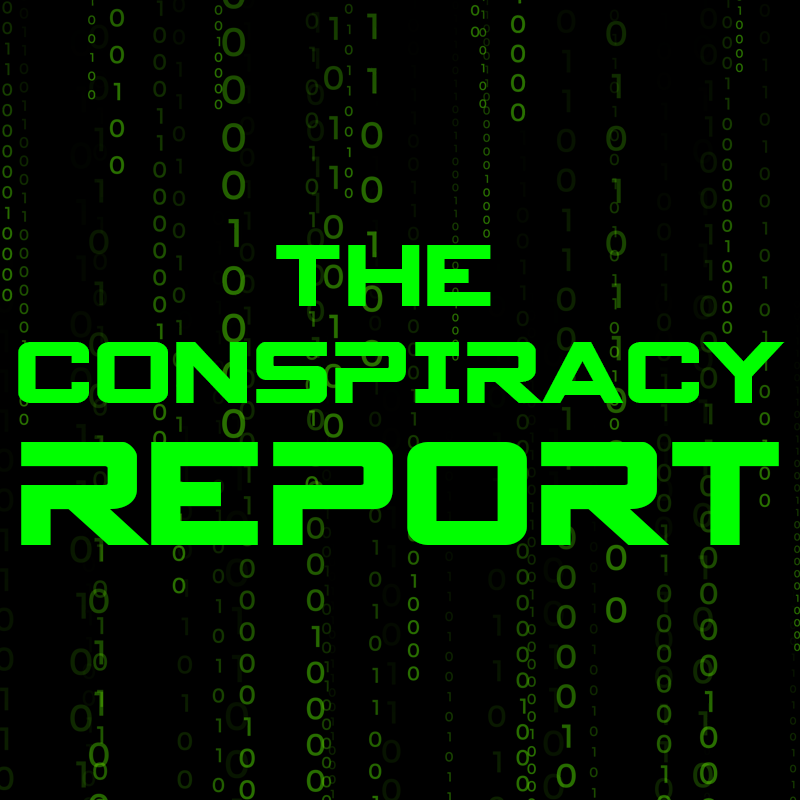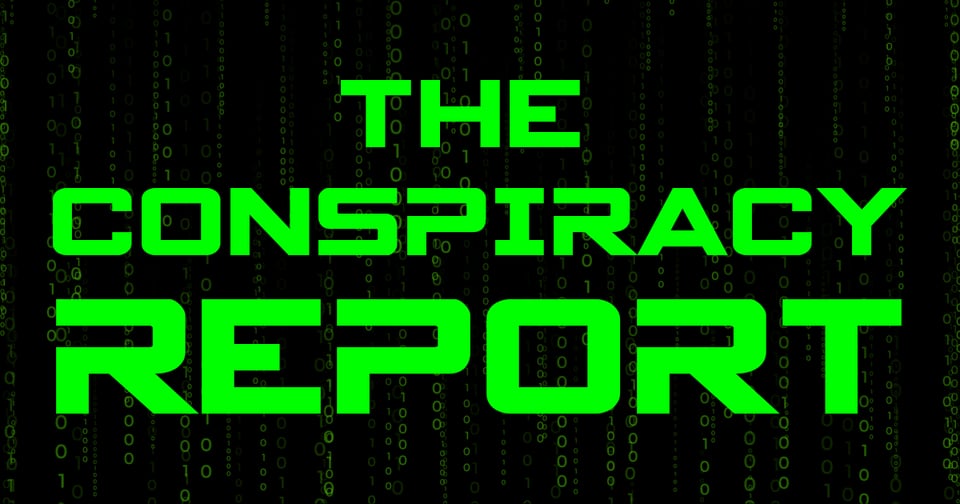Feb. 4, 2025, 2:24 a.m.
Law and Orders: Executive Orders and Constitutional Chaos

The Conspiracy Report

Anyone who has seen the first day of Trump 2.0 probably witnessed the massive signing of Executive Orders.
It was the second coming of his administration, as he tries to prove that the pen is mightier than the law.
The nerd assisting with the televised signings, the kid in the standard issue blue suit and red tie deferentially handed the folders to the President. It was like he was handing the wine list to a patron at a fancy restaurant.
Trump greedily accepted them, and displayed his extravagant signature for all to see.
Whether you’re a fan of the Great Trumpkin or not, it’s apparent that by the flourish of a thick black Sharpie pen, Trump is trying to dry up the irrigation ditches that support numerous government programs.
In his desire to isolate America from the rest of the world, and turn off the treats to other countries that he says trick us, he will certainly change the status quo.
But while Executive Orders have been around since Washington was cleaning his wooden teeth, the country has not before seen such an immediate litigation reaction to a President’s proclamations.
Executive Orders are within the capacity of the President to issue. As the CEO of our country, he can direct federal officials and administrative agencies to do things or not do things. But it isn’t an unrestricted right.
The actions of the orders will, or can bump up against the United States Constitution at times. And when it comes to the Trump administration, that will likely be a lot of times.
The constitutional authority of the president to issue Executive Orders isn’t specifically granted him. Such authority however, is implicit in Section I Article 2 of the Constitution wherein it states, ‘The Executive Power shall be vested in the President of the United States of America.’
However, sections 3 and 4 limit such power where it states, the President shall ‘take care that the Laws be faithfully executed.’
Prior executive orders may be rescinded, and the incoming executive can undo many of the social legislation of a previous administration, putting forth his policies — and prejudices.
Now, it isn’t exactly a ‘best kept secret’ that Trump isn’t a fan of illegal aliens.
If we look at Federal Law, specifically 8 United States Code Section 1182, the President definitely may restrict aliens who are ineligible or inadmissible from entry into the country.
Some of the language contained therein, refers to aliens who ‘have a physical or mental disorder and behavior associated with the disorder that may pose, or has posed, a threat to the property, safety, or welfare of the alien or others.’[1]
Where have we heard rhetoric to that effect from Trump? Just about in every campaign speech where he speaks of invading hordes of aliens from asylums and prisons. Those are the types that definitely can be prevented from entry — or deported if they have entered.
In his executive orders, Trump has specifically stated:
‘Many of these aliens unlawfully within the United States present significant threats to national security and public safety, committing vile and heinous acts against innocent Americans. Others are engaged in hostile activities, including espionage, economic espionage, and preparations for terror-related activities. Many have abused the generosity of the American people, and their presence in the United States has cost taxpayers billions of dollars at the Federal, State, and local levels.’[2]
In that same order, we find a direction from the President:
‘The Secretary of Homeland Security shall promptly take all appropriate action and allocate all legally available resources or establish contracts to construct, operate, control, or use facilities to detain removable aliens. The Secretary of Homeland Security, further, shall take all appropriate actions to ensure the detention of aliens apprehended for violations of immigration law pending the outcome of their removal proceedings or their removal from the country, to the extent permitted by law.’[3]
That type of order will likely be found legal, as it is a direction to an administrative agency to do something, which is in the wheelhouse of a Presidential Executive Order.
However, to deny children born in the United States who are the offspring of those who have illegally entered, that’s where an Executive Order can bump up against the Constitution. And give rise to litigation, challenging the authority of that order.
Let’s take a look at the offending directive:
‘Among the categories of individuals born in the United States and not subject to the jurisdiction thereof, the privilege of United States citizenship does not automatically extend to persons born in the United States: (1) when that person’s mother was unlawfully present in the United States and the father was not a United States citizen or lawful permanent resident at the time of said person’s birth, or (2) when that person’s mother’s presence in the United States at the time of said person’s birth was lawful but temporary (such as, but not limited to, visiting the United States under the auspices of the Visa Waiver Program or visiting on a student, work, or tourist visa) and the father was not a United States citizen or lawful permanent resident at the time of said person’s birth.’[4]
Trump has made the ‘not subject to the jurisdiction of the United States’ argument in said order to avoid the language of 8 UNITED STATES CODE 1401 (a) which states, ‘a person born in the United States, and subject to the jurisdiction thereof; is a citizen.’[5]
It was that bit of tortuous logic that ‘birthright’ citizens (of illegal aliens), weren’t subject to the jurisdiction of the United States, and therefore not citizens. That triggered the litigation which came hotly on the heels of his executive order.
The American Civil Liberties Union sued the Trump administration right after the issuance of the aforesaid order.
‘This order seeks to repeat one of the gravest errors in American history, by creating a permanent subclass of people born in the U.S. who are denied full rights as Americans. We will not let this attack on newborns and future generations of Americans go unchallenged. The Trump administration's overreach is so egregious that we are confident we will ultimately prevail,’ said Anthony D. Romero, the executive director of the ACLU.[6]
This is just one example of the types of litigation we may expect from the flurry of Executive Orders by the Trump administration. While pre-Trump administrations were usually subject to litigation when the administrative agencies carried out the directives in the orders, ‘Trump’s presidency appears to have ushered in a new era of litigation targeted directly at presidential orders.’[7]
Why You Should Care
Most of us probably agree that aliens entering our country should do so legally, and conform to the rules and regulations of such entry. Most of us probably agree that if you’re born in the USA, like Springstein, you can be a ‘cool rocking daddy in the USA.’
An infant has no say over when and where it is born, and who its parents are. Now, while many Americans are tired of letting into our country all of those ‘tired and poor huddled masses yearning to be free,’ hopefully we have not grown weary of our Constitutional rights and the checks and balance system of our Republic.
Hopefully we are concerned about the inherent dangers of an ‘Imperial Presidency,’ especially from someone who told us prior to winning the election, that (only) on day one would he be a dictator.
The Constitution is — and should be — color blind. So should we when it comes to a situation where a constitutional right is attacked by an executive order exceeding its authority.
[1] 8 USC 1182 (1) (A) (iii) 1 https://uscode.house.gov/view.xhtml?req=granuleid:USC-prelim-title8-section1182#=0&edition=prelim
[2] TRUMP’S EXECUTIVE ORDER 1/20/25 THE WHITE HOUSE 1/20/25 https://www.whitehouse.gov/presidential-actions/2025/01/protecting-the-american-people-against-invasion/
[3] IBID.
[4] WHITE HOUSE 1/20/25 PROTECTING THE MEANING AND VALUE OF AMERICAN CITIZENSHIP https://www.whitehouse.gov/presidential-actions/2025/01/protecting-the-meaning-and-value-of-american-citizenship/
[5] 8 USC 1401 (A) https://www.law.cornell.edu/uscode/text/8/1401
[6] ACLU 1/20/25 https://www.aclu.org/press-releases/immigrants-rights-advocates-sue-trump-administration-over-birthright-citizenship-executive-order
[7] REVIEWING PRESIDENTIAL ORDERS CHICAGO U SCHOOL OF LAW LAW REVIEW https://lawreview.uchicago.edu/print-archive/reviewing-presidential-orders